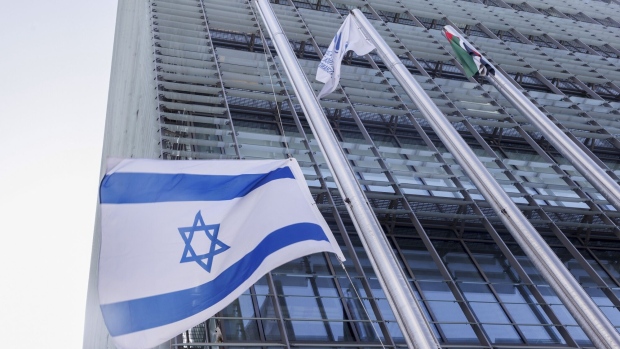Dec 5, 2023
Israel Says It Found No Trade Abnormalities Before Hamas Attack
, Bloomberg News

(Bloomberg) -- Israel’s Securities Authority said it found no significant stock-trading abnormalities in the days preceding Hamas’s Oct. 7 attack that warrant further investigation, responding to claims in a US-authored research paper that had caused a public uproar.
Tel Aviv Stock Exchange Chief Executive Officer Ittai Ben-Zeev added there were also no oddities evident in equity, bond, or derivative trading, according to an interview Wednesday with Bloomberg TV. The “local market didn’t see anything that’s awkward,” he said.
The securities regulator, known as ISA, opened an investigation into possible suspicious pre-attack trading not long after the deadly incursion took place, it said in a statement Tuesday. It then re-examined those findings following the publication of a research report on Dec. 4 titled “Trading on Terror,” written by Robert J. Jackson, at New York University School of Law, and Joshua Mitts, at Columbia Law School.
The US-based researchers said they found a “significant spike in short selling in the principal Israeli-company ETF days before the Oct. 7 Hamas attack,” referring to exchange-traded funds popular with investors seeking exposure to a specific region, country or industry. “Our findings suggest that traders informed about the coming attacks profited from these tragic events,” they wrote.
Domestic Only
ISA said it’s only responsible for overseeing trading occurring in the country, and therefore its lack of findings “reflect only trading activity in Israel.” It didn’t comment on trading of Israeli securities abroad, which could include US-listed ETFs.
The US authors also said they found a substantial overall increase in short-selling interest in the Tel Aviv Stock Exchange, peaking just before the attack. “For one company alone, Bank Leumi Le-Israel, 4.43 million new shares sold short over the Sept. 14 to Oct. 5 period, yielding profits of 3.2 billion shekels ($863 million) on that additional short selling,” the said.
But Yaniv Pagot, head of trading at the stock exchange, said the researchers miscalculated, since share prices are listed in agorot, which are similar to cents, rather than shekels, “putting the short-sale profit at just 32 million shekels.”
The authors later corrected their findings to reflect the use of agorot.
Stocks Rebound
Israel’s TA-35 stock index dropped 6.5% on Oct. 9, the first trading day after the attack, but has since rebounded to close 1.3% lower as of Tuesday compared with Oct. 5.
Ben-Zeev told Bloomberg TV that international investors have been returning to the Tel Aviv equity market in the past couple of weeks after pulling out money at the start of the war with Hamas.
“Investors acknowledge that the market is very cheap and they’re used to these types of situations,” he said.
(Updates with Tel Aviv Stock Exchange CEO in second paragraph.)
©2023 Bloomberg L.P.





